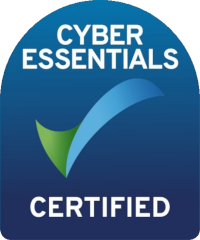BLOG
Empowering Non-Tech Charities: Bridging the Digital Divide through Tech Training
Elevate Accountability, Simplify Compliance: Unleash the Power of Energise Advance
- Leadership
- Service Delivery
- Technology
- 17-05-2023
In the digital age, technology is not a luxury but a necessity for organizations of all types, including non-profits. While the impact of technology on businesses is well-documented, non-tech charities face a unique set of challenges and opportunities when it comes to embracing tech advancements. These organizations, often driven by a noble cause and dedicated volunteers, can unlock even greater potential by closing the tech knowledge gap.
The Challenge: A Digital Divide
Non-tech charities, which focus on addressing critical societal issues like poverty, healthcare, education, and environmental conservation, may not have the resources or expertise to harness the full potential of technology. This knowledge gap manifests in several ways:
-
Limited Online Presence: According to recent statistics, nearly 50% of non-profit organizations struggle with maintaining an updated website and engaging on social media platforms effectively. This limits their ability to connect with potential supporters and convey their mission.
-
Inefficient Operations: Outdated processes and manual workflows can be resource-intensive and hinder a charity's ability to deliver services efficiently. In fact, a report by the Nonprofit Technology Network (NTEN) found that 41% of non-profits still use manual methods for tasks that could be automated.
-
Data Vulnerabilities: With the increasing importance of data in decision-making and donor engagement, non-profits without adequate tech training may inadvertently expose themselves to data security risks. A study by the Nonprofit Technology Enterprise Network revealed that only 51% of non-profits have a written data security policy in place.
-
Fundraising Challenges: The digital landscape has reshaped fundraising strategies, with online giving growing steadily year by year. However, many non-tech charities may not be fully equipped to run effective digital fundraising campaigns, potentially missing out on valuable support.
The Need for Tech Training
Closing the tech knowledge gap within non-tech charities is crucial for several reasons:
-
Enhanced Efficiency: Training programs can equip these organizations with skills to automate tasks, improve project management, and make data-driven decisions, freeing up time and resources for their core missions.
-
Expanded Reach: A strong online presence can significantly extend the reach of non-profits. Charities proficient in technology can tap into a global network of supporters, volunteers, and potential partnerships. A survey by the Charitable Aid Foundation (CAF) found that 42% of donors worldwide give online.
-
Data Security and Trust: Effective tech training ensures that non-profits can manage donor data securely, fostering trust and compliance with data protection regulations like GDPR. In an era of heightened data privacy concerns, this is paramount.
-
Sustainable Growth: Non-tech charities that embrace technology are better positioned for long-term sustainability and scalability. According to a report by the Global NGO Technology Report, 92% of non-profits worldwide consider technology essential for their future success.
Empowering Charities through Tech Training
To bridge the tech knowledge gap within non-tech charities, consider the following strategies:
-
Partnerships: Tech companies, educational institutions, and other non-profits can collaborate to offer tailored training programs addressing the specific needs and challenges faced by non-tech charities.
-
Online Resources: Create a repository of online resources, webinars, and tutorials focused on common tech challenges encountered by non-profits. Make these materials readily accessible and user-friendly.
-
Mentorship Programs: Establish mentorship initiatives that connect non-tech charities with tech-savvy volunteers or experts who can provide guidance, answer questions, and offer hands-on support.
-
Funding Support: Encourage funders and donors to prioritize tech training as part of their contributions. Highlight the long-term impact it can have on non-profit effectiveness and sustainability.
In conclusion, technology is a powerful tool that can amplify the impact of non-profit organizations. By addressing the tech knowledge gap through comprehensive training and support, we can empower non-tech charities to not only survive but thrive in the digital age. Closing this gap will enable them to reach more people, operate more efficiently, and ultimately make a more profound difference in the causes they champion. In doing so, we collectively contribute to a more connected, informed, and compassionate world.

Lucy Greewell
Marketing Manager At Energise TechnologyLucy is passionate about writing about technology and third sector insight to help organisations meet the needs of stakeholders and end-users.
Contact us
If you'd like to know more about how we can help your organisation, please get in touch.
Subscribe to our newsletter
About Us
Innovative digital solutions for education - supporting policy, leadership, delivery, and learning

Useful Links
Contact Us
Trent Lodge
Stroud Rd
Cirencester
GL7 6JN
0117 4573283